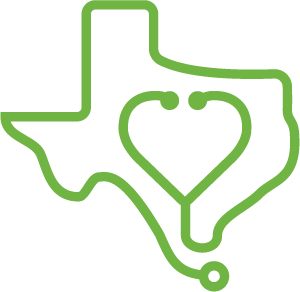Depression and Anxiety in Texas: Understanding the Challenges and Seeking Support
Mental health is a critical aspect of overall well-being, and in Texas, as in many other places, depression and anxiety affect countless lives. Let’s explore the prevalence of these conditions in the Lone Star State, recognizing the symptoms of depression and anxiety, and resources available for Texans struggling with depression and anxiety.
1. The State of Mental Health in Texas
Anxiety and Depression Statistics: Approximately 43.4% of Texas adults experience symptoms of anxiety or depression1. These symptoms can manifest as feelings of worry, restlessness, irritability, rapid heart rates, and insomnia.
Teens and Mental Health: In San Antonio, nearly 50% of teens aged 12-19 grapple with mental health issues1. Adolescents face unique challenges, and it’s crucial to provide them with appropriate support.
County-Level Disparities: Reports of poor mental health increased by 25% from 2011 to 2021 in Travis County, Austin, Texas1. This highlights the need for targeted interventions and community-based programs.
Shortage of Mental Health Professionals: Shockingly, 80% of Texas counties are designated as Mental Health Professional Shortage areas1. Access to mental health services remains a significant concern.
2. Recognizing the Signs Depression: The Silent Thief
Depression stealthily creeps into life, often unnoticed at first, stealing joy and energy. It’s characterized by:
Persistent Sadness: A profound sense of despair that lingers1.
Loss of Interest: A withdrawal from activities that once brought pleasure1.
Fatigue: An overwhelming tiredness that makes even simple tasks seem monumental1.
Sleep Issues: Insomnia or hypersomnia can disrupt daily life1.
Appetite Changes: Significant weight loss or gain unrelated to dieting1.
Physical Pain: Unexplained aches that don’t have a clear physical cause1.
Anxiety: The Restless Shadow
Anxiety is like a shadow, following closely, casting doubt and fear. It manifests as:
Excessive Worry: An unrelenting concern over everyday issues1.
Heart Palpitations: A heart that races without physical exertion1.
Rapid Breathing: Also known as hyperventilation, adding to the sense of panic1.
Concentration Difficulties: A mind so besieged by worries that focus becomes a struggle1.
The Convergence of Depression and Anxiety
It’s not uncommon for depression and anxiety to co-occur, complicating the emotional landscape. Recognizing the signs is vital, as they often share common triggers and can intensify each other’s impact1.
3. Resources
Statewide Mental Health Resources
Mental Health Texas: This platform provides learning and treatment opportunities for those coping with mental health conditions and those who support them. It includes an eLearning Hub with resources on common behavioral health conditions1.
Crisis Services
Community and Family Support
Community Resource Coordination Groups: These local partners and community members help people with complex, multi-agency needs get benefits and services2.
Finding Local Providers
Find Your Local Mental Health or Behavioral Health Authority: Texas Health and Human Services contracts with local authorities to deliver mental health services across Texas. You can find where to get services in your area by knowing your county or ZIP Code4.
These resources are designed to provide Texans with the support they need to manage depression and anxiety. If you or someone you know is struggling, don’t hesitate to reach out to these services for help.
Conclusion
Depression and anxiety impact individuals, families, and communities across Texas. By raising awareness, advocating for mental health resources, and fostering understanding, we can create a more compassionate and supportive environment for those facing these challenges. Remember that seeking help is a sign of strength, and you don’t have to face these struggles alone.
If you or someone you know is experiencing a mental health crisis, please seek professional assistance or call the nearest emergency room. Let’s work together to promote mental well-being in the Lone Star State!

